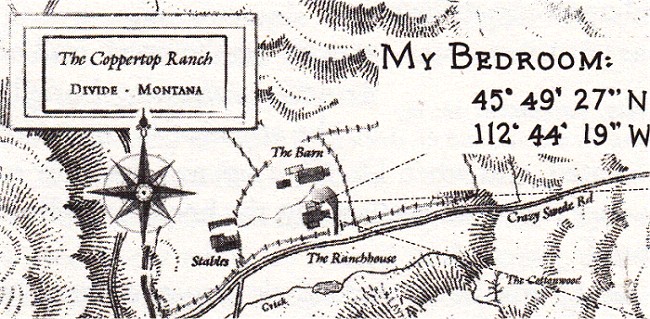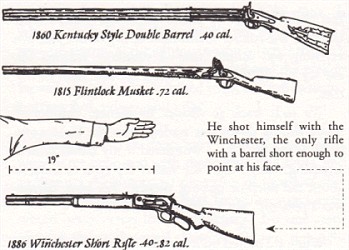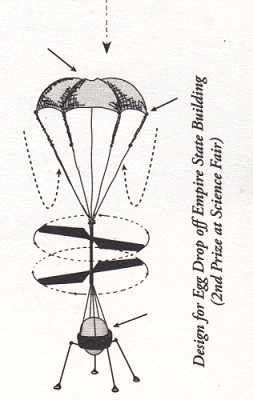
|

Introduction:
T.S. Spivet lives on a ranch in Montana with his mother who is obsessed with the morphology of beetles, his father (a cowboy born a hundred years too late) and his 14 year-old sister who dreams of becoming Miss America. There is also Layton, the twin brother who died in an accident involving a firearm in the family's barn, which no one ever speaks of. T.S. was with him, measuring the scale of the gunshots for an experiment, and he doesn't understand what happened. T.S. is a 12 year-old prodigy with a passion for cartography and scientific inventions. One day, he receives an unexpected call from the Smithsonian museum telling him that he is the winner of the very prestigious Baird prize for his invention of a perpetual motion machine and that he is invited to a reception in his honor where he is expected to give a speech. Without telling anyone, he sets out on a freight train across the United States to reach Washington, D.C.
I dutifully mounted the footstool and took out the crumpled piece of paper from my pocket.
"Hello, everybody," I said. "My name is T. S. Spivet. I am named after Tecumseh, the great Shawnee general, who tried to unite the tribes of all Indian nations before he was gunned down by the U.S. Army at the Battle of the Thames. My great-great-grandfather Tearho Spivet, who was from Finland, adopted this name after his arrival in the U.S., and someone from every generation has been named Tecumseh since... and so sometimes when I say T.S., I can feel my ancestors inside there. I can feel T.T. and T.R. and T.P. and even T.E., my father, who is very different from me — I can feel them all in my name. Maybe even Tecumseh himself is bumping around in there, very confused as to why this lineage of Finnish-German farmers has co-opted his name. But of course I don't think about my ancestors every time I say my name, especially when I am just saying it quickly, like when I say, `Yeah, its T.S.,' in a phone message or something. If I was always thinking about my ancestors — my God, this would become ridiculous." I paused. "But I guess you are probably wondering what my other initial stands for."
I got down off the little footstool and walked to the screen behind me that had the giant Smithsonian sun projected on it. With my thumbs locked together, I did my best to re-create the sparrow shadow puppet that Two Clouds had shown me. (Two Clouds, a hobo T.S. met on his train journey)
...............................
I took a deep breath and continued: "You are all probably very smart people who have earned their Ph.D.s and whatnot, so I will not try to tell you things you do not know about, because I have only graduated seventh grade and do not know as many things as you. But, besides my name, I would like to tell you three things tonight."
I held up my first finger. I squinted* down at the front row and showed them my finger. I could see Jibsen*. He smiled and held up his finger. Something caught, and then everyone up front held up their fingers. I could hear a great shuffling as I imagined 392 fingers collectively held up in the air. "The first thing I want to say is thank you for letting me speak and thank you for not canceling my fellowship because I was younger than you might have expected. Often, I am younger than I might have expected, but this does not stop me from doing my work. But it is a dream come true to be at the Smithsonian. I have always wanted to feel its room-feeling and now I am here. I will try to work very hard to show you that you did not make a mistake in choosing me for this award. I will spend every second of the day mapping and making new diagrams for the museum, and hopefully everyone will be happy with my maps and diagrams."
I held up a second finger. This was keeping me on track. Jibsen and the audience dutifully followed suit. Twos abounded. "The second thing I would like to tell you is why I make maps. Many people have asked me why I spend all my time drawing maps instead of playing outside with other boys my age. My father, who is a rancher from Montana, does not really understand me. I try to show him how maps can be useful in his line of work, but he doesn't listen. My mother is a scientist like you people, and I wish that she could be here tonight, because I think that even though she says the Smithsonian is an old boys' club, she would have many interesting things to say to you and also she might learn how to be a better scientist. Like, for instance, she might learn that she would be better off not chasing after the tiger monk beetle anymore, that there are actually a lot of other useful things to do besides search for something that doesn't exist. But you know what is strange? Even though she is a scientist, she still doesn't understand me. She doesn't really see the purpose of mapping all the people that I meet, all the places I see, everything that I have ever witnessed or read about (see below T.S.'s achievements). But I don't want to die without having taken a crack* at figuring out how the whole thing fits together, like a very complicated car, like a very complicated car in four dimensions... or maybe six or eleven, or I forget how many dimensions there are supposed to be."
I stopped. There were probably many people in the audience who knew how many dimensions there were. They had perhaps even discovered these dimensions. I swallowed nervously and looked at my notes. I realized that I did not have a third point written down. This must have happened when the tailor came in and Jibsen gave me those unmarked painkillers. Everyone waited, their two fingers in the air.
"Um...," I said. "Are there any questions so far?" "What's the third thing?" someone asked.
"Yes," I said. "What is the third thing?"
"TS.!" a man called from behind the glare. This was that same familiar voice. "Don't worry about dying! You've got about fifty years on us! We're the ones who should worry about getting our work done. You have your whole life in front of you."
His words caused a stirring in the room. People were whispering.
"Okay," I said. "Thank you."
"Okay," I said again. People were still whispering. I looked down at Jibsen, who was shifting uncomfortably. He made a motion with his hands for me to keep going. I had lost them. I was a failure. I had no idea what I was doing. I was a child.
"My brother died this year," I said.
The room went silent. True silence.
"He shot himself in the barn....That sounds weird to say out loud, because it has never been said like that. No one ever said, `Layton shot himself in the barn.' But that is exactly what happened. I didn't mean for it to happen. We were working together on a seismoscope* diagram. I was so excited. You see, he collected guns and we had such a hard time playing together....I think he thought I was so weird, always drawing and recording, and he would punch me and say, `Stop writin' it down!' He never understood. He wasn't like that...he, he just tackled everything without blinking. He loved his guns. He would spend all day shooting empty bean cans off the jack boulders or go hunting voles* down in the gulches*. So I came up with this idea...we could play with his guns together. I would make a sound-wave map for each gun, and I could overlay all kinds of information in these sonic displays, like gauge* and accuracy and distance, and I thought this would be a way for us to just be doing our things together. To be both comfortable and be brothers. And it was great. We worked together for three days. And he loved to shoot his guns for me and I was getting really great data. You would never believe how different gunshots can look from one another....And then one of his Winchesters jammed* while it was loaded. He was cleaning the top or something, just checking the muzzle*, and I went to hold the bottom, just to steady the base, you know? And I didn't even touch the trigger. But there was this explosion. And he flew across the room. I looked and then I...He was bleeding and his head was turned away from me but I could feel he wasn't my brother anymore. He wasn't anyone anymore...I could tell just by my own breathing that there were two of us and then there was one of us. And I..." I let out a tight, thin gasp. "I didn't mean to do it. I didn't, I didn't."
1346 words (without introduction)
Source: THE YOUNG AND PRODIGIOUS T.S. SPIVET by Leif Larsen, Verlag: Vintage (24. April 2014), pp. 310-314
Annotations:
* to squint - blinzeln
* Jibsen - a character who woks for the Smithsonian Institution and calls T.S.
* to have a crack at sth - etwas in Angriff nehmen
* seismoscope - Vorrichtung, um Schallwellen zu messen
* voles - Wühlmäuse
* gulch - Bergschlucht
* gauge - Kaliber
* to jam - blockieren
* muzzle - Gewehrmündung
Assignments:
1. Briefly say how T.S. has organized his speech and summarize each part in your own words.
2. From what the text says, what conclusions can you draw from T.S.'s relationships with his father, mother and his brother Layton?
3. What does T.S.'s mentioning his brother's death mean for him and the audience?
4. Why is the Smithsonian Institution so enthusiastic about bestowing the Baird Award onto a 12-year-old boy?
5. In the course of the novel T.S. says that he "felt more like a creator...Computers made me feel like an operator" (p. 139). What does he mean?
Spivet's journey on GoogleEarth
T.S.'s achievements:
My projects were wide-ranging. There were the illustrations: schematics of industrious leafcutter ant colonies and numerous, multihued lepidoptera; exploding anatomical charts of horseshoe-crab circulatory systems; electron microscope diagrammatics of the feathery sensilla in the antennae of the Anopheles gambiae — the malaria
mosquito.
And of course there were also the maps: the Washington, D.C., sewer system in 1959; a time-lapse overleaf showing the decline of Indian nations on the High Plains over the past two centuries; three contrasting hypothetical projections of the U.S. coastline in three hundred years, depicting competing theoretical outcomes of global warming and polar ice cap melt.
And then there was my favorite: the seven-foot diagram of the bombardier beetle mixing her — and it was a female—boiling hot secretions, which took me four months to draw, research, and label, and resulted in a terrible case of whooping cough that kept me out of school for a week.

 |
 |

|




